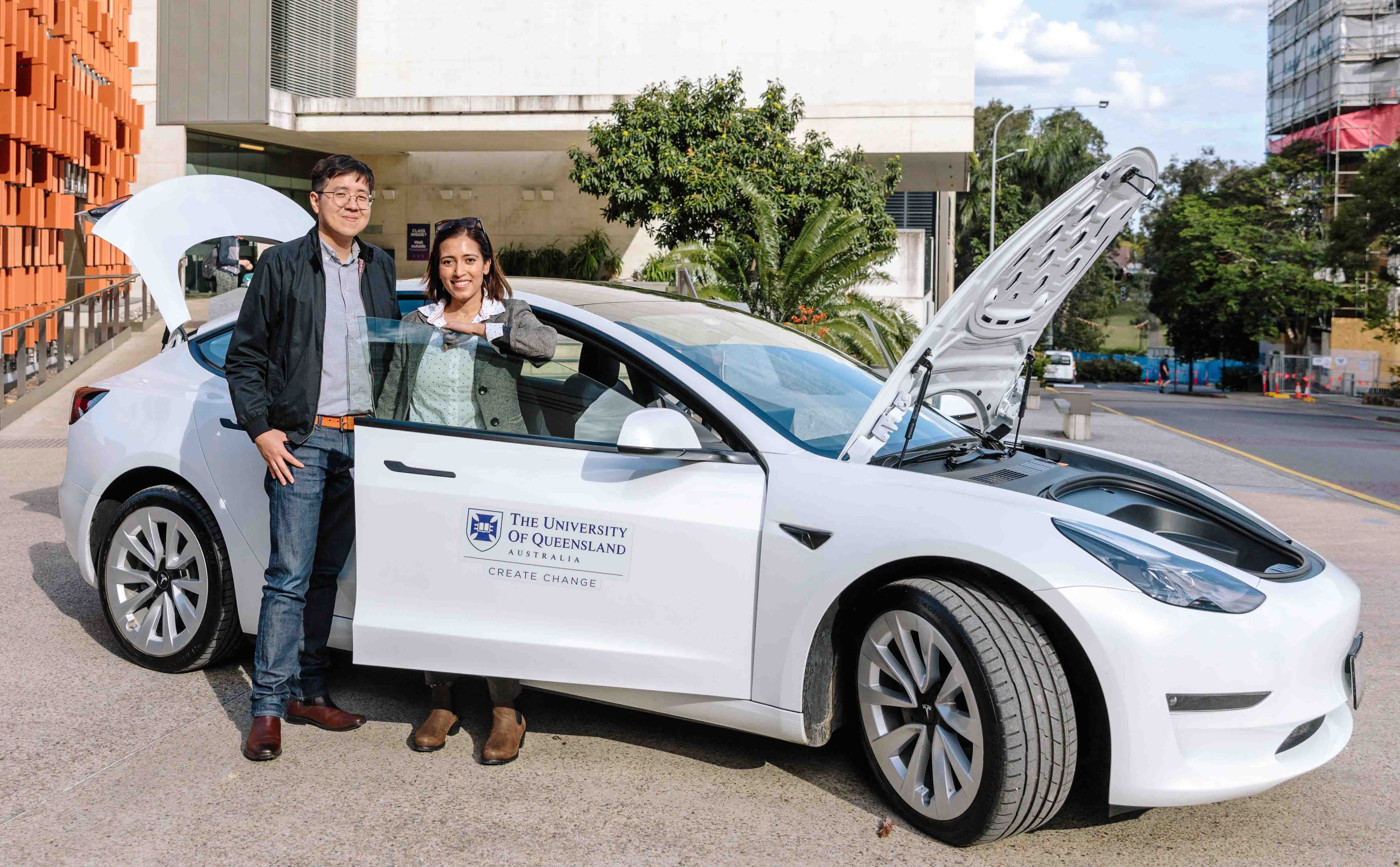Advancing sustainable transport solutions and decarbonising passenger and heavy vehicles

The UQ E-mobility Team is an interdisciplinary group of experts supported by the Trevor and Judith St Baker Family Foundation and the St Baker Energy Innovation Fund. Their generous support led to the establishment of two endowed fellowships the Tritium Fellow in E-Mobility, Dr Dia Adhikari Smith, and the St Baker Fellow in E-Mobility, Dr Kai Li Lim. Dr Lim focuses on passenger vehicles, data engineering, and spatiotemporal analysis, while Dr Adhikari Smith's research concentrates on the decarbonisation of heavy vehicles, feasibility studies, strategic roadmaps and policy assessments.
The E-Mobility Team collaborates with a diverse range of internal and external stakeholders, including governments, industry partners, and academic institutions. The team brings together researchers, engineers, and policymakers with expertise in various fields such as energy systems, electric vehicles, infrastructure planning, and environmental policy. This collaborative approach ensures a comprehensive understanding of the challenges and opportunities in the transport sector.
Key focus areas of the E-Mobility Team include:
Analysing charging and mobility behaviours: Investigating the habits of current electric vehicle (EV) owners and assessing broader consumer preferences towards EVs to identify challenges and opportunities for creating sustainable, affordable, and resilient energy systems.
Decarbonising heavy vehicles: Conducting research on the transport, construction, and mining sectors through feasibility studies, emissions modelling, cost-benefit analyses, total cost of ownership scenarios, strategic roadmap development, and policy assessments. This research explores electric, hydrogen fuel cell, electric-biofuel range extenders, and advanced biofuel technologies to achieve net-zero emissions.
Infrastructure planning and management: Focusing on the placement, planning, energy management, and grid connection of charging and refuelling infrastructure for electric and hydrogen-powered vehicles, as well as electrified construction sites.
Developing policy packages: Crafting a suite of policies to facilitate decarbonisation by addressing financial and regulatory barriers, supporting industry development, and promoting trials.
By fostering strong partnerships with stakeholders across governments, industry, and academia, the UQ E-Mobility Team aims to drive significant change in the transport sector and contribute to a cleaner, more sustainable future for all.
Selected ongoing projects
- iMOVE CRC: Emissions and Economic Modelling for Road and Rail Freight in NSW
This research aims to model the reductions in emissions and the economic benefits that will result from decarbonising the freight sector in New South Wales. The research will achieve this by developing a robust evidence base to support the development of the TfNSW Net Zero Freight Emissions Policy through establishing emissions and economics projections up to 2050, including assessment of the impacts of various policy levers and interventions that will be identified in this study.
- The Green Australian Vehicle Ownership (GreenAVO) Capability for AURIN
This project is in collaboration with RMIT and UQ School of Earth and Environmental Sciences, supported by Australian Urban Research Infrastructure Network (AURIN). The scope in this project is to consolidate vehicle uptake data (state-wise, starting with SA) and match against the Australian Green Vehicle Guide to estimate vehicle emissions and offsets from EV uptake.
- Energy Consumers Australia Project: Highlighting the benefits of price incentives for electric vehicle charging: evidence from a field experiment with telematics data
The UQ Teslascope Project, supported by Energy Consumers Australia, intends to investigate will involve a randomised control trial of incentives to shift the time of charging outside peak hours and builds on an existing work program using telematics data tracking minute by minute vehicle driving and charging of around 200 vehicles in Australia. As part of the project, Dr Lim will be developing a real-time web-based data dashboard visualising aggregate driving and charging patterns of project participants.
